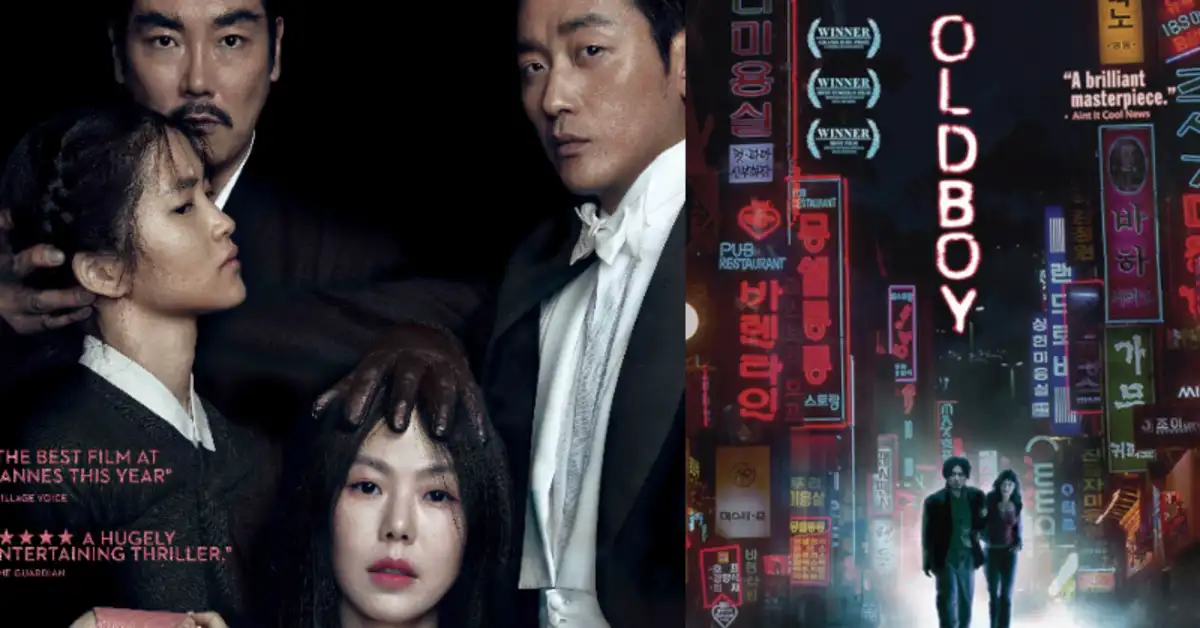South Korean cinema has gained global acclaim, but some films have stirred international controversy due to their bold themes, explicit content, or sensitive portrayals. This article explores eight Korean movies that faced significant backlash or debate worldwide, focusing on verified details from multiple sources. Each film is examined for its content, the reasons behind its controversy, and its impact, presented in simple, clear English.
Piagol (1955)
Piagol, directed by Lee Kang-cheon, is a landmark film in South Korean cinema. Set during the Korean War, it follows a group of North Korean guerrilla fighters near Mt. Jirisan who refuse to accept the armistice. The film was banned by South Korea’s censorship board for allegedly promoting communist ideals, a sensitive issue during the Cold War.
The controversy arose because the film portrayed North Korean fighters as protagonists, which authorities feared could incite sympathy for communism. Lee Kang-cheon protested, arguing the film highlighted flaws in communist ideology. After public debates and revisions, including scene cuts, it was released. Internationally, the ban drew attention to South Korea’s strict censorship policies.
“The censors missed the point. The film shows the failure of their ideology.”
— Lee Kang-cheon, on the film’s intent
The film remains significant, ranked as the 15th greatest South Korean movie by the Korean Film Archive. Its controversy highlighted tensions over political expression in cinema.
Lies (1999)
Lies, directed by Jang Sun-woo, is an adaptation of Jang Jung-il’s banned novel. It depicts a sadomasochistic relationship between a sculptor and a high school girl. The film faced international scrutiny for its explicit sexual content and the novel’s prior ban, which led to the author’s imprisonment.
South Korea’s censorship board required multiple cuts before release, and the original uncut version is reportedly lost. Internationally, the film was criticized for its graphic scenes, with some festivals debating its artistic merit versus its provocative nature. The film’s restricted rating in South Korea sparked a lawsuit against the Movie Rating Board, which was deemed unconstitutional.
“The film pushes boundaries, but it’s art, not just shock.”
— International festival reviewer, anonymous
Despite accolades at global festivals, Lies remains divisive for its bold approach to taboo subjects, raising questions about censorship and artistic freedom.
Moebius (2013)
Moebius, directed by Kim Ki-duk, is a silent film exploring family dysfunction, incest, and extreme violence. Its controversial themes, including graphic depictions of self-harm and sexual taboos, led to international backlash. The film was banned in South Korea until significant cuts were made.
At international screenings, such as the Venice Film Festival, audiences were shocked, with some walking out. The film’s lack of dialogue amplified its disturbing visuals, intensifying debates about whether it crossed ethical lines. Kim Ki-duk faced accusations of misogyny, a recurring critique of his work.
“It’s not about shock; it’s about human pain.”
— Kim Ki-duk, defending the film
Moebius gained notoriety for its daring narrative but remains polarizing, with critics split on its artistic value versus its graphic content.
The Handmaiden (2016)
The Handmaiden, directed by Park Chan-wook, is a psychological thriller set during Japan’s colonial rule over Korea. It follows a pickpocket and a heiress in a complex plot involving deception and romance. The film’s explicit depiction of a lesbian relationship sparked international debate, particularly in conservative regions.
Additional controversy arose from Kim Min-hee’s publicized affair with the married Hong Sang-soo, which overshadowed the film’s critical acclaim. In South Korea, extramarital affairs were illegal until 2015, adding legal and social scrutiny. Internationally, some praised the film’s bold storytelling, while others criticized its sexual content as exploitative.
“The love scenes are beautiful, but they shocked many.”
— Anonymous netizen on X
The film’s Rashomon-style narrative and stunning visuals earned global praise, but its controversies fueled discussions on cultural norms and personal conduct.
Oldboy (2003)
Oldboy, directed by Park Chan-wook, is the second part of his Vengeance Trilogy. It follows Oh Dae-su, a man imprisoned for 15 years who seeks revenge upon release. The film’s graphic violence, incestuous themes, and a scene where Choi Min-sik eats a live octopus drew international outrage.
The climax, revealing a taboo relationship, shocked audiences worldwide. Animal rights groups criticized the octopus scene, though Park claimed it was culturally contextual. The film’s Bollywood remake, Zinda, also faced backlash for similar reasons. Despite controversies, Oldboy is a cult classic, praised for its storytelling.
“That ending was too much for me. Brilliant but disturbing.”
**“The octopus scene made me sick. Why include it?”*
— Netizen reactions on international forums
Oldboy’s global success, including a Grand Prix at Cannes, cemented its legacy, but its provocative elements remain debated.
Silenced (2011)
Silenced, starring Gong Yoo, is based on the novel The Crucible and real events at Gwangju Inhwa School, where deaf students faced sexual abuse. The film’s graphic depiction of abuse and the revelation that perpetrators received light sentences sparked international and domestic outrage.
The film led to public petitions and legislative changes in South Korea, including stricter laws against abuse. Globally, it drew attention to systemic failures in protecting vulnerable groups. Some criticized its intense scenes as exploitative, while others praised its impact on social justice.
“This movie broke my heart but opened my eyes.”
**“How could the court let them go so easily?”*
— Global viewer comments on social media
Silenced’s influence on policy reform is a testament to cinema’s power, though its heavy themes stirred emotional debates.
Hope (2013)
Hope, directed by Lee Joon-ik, is based on the 2008 Nayoung Case, where an 8-year-old girl, So-won, was brutally attacked. The film portrays her family’s struggle to heal. Its graphic depiction of child assault caused international discomfort, with some viewers questioning its necessity.
The film faced scrutiny for potentially retraumatizing victims, though it aimed to raise awareness. In South Korea, it prompted discussions on child safety laws. Internationally, festivals praised its emotional depth, but audiences were divided over its intense subject matter.
“It’s a powerful story, but too painful to watch.”
— Anonymous viewer at a festival screening
Hope won awards for its sensitive portrayal, but its raw depiction of trauma remains a point of contention.
The Isle (2000)
The Isle, another Kim Ki-duk film, centers on a mute woman and a man at a fishing resort. Its graphic scenes, including animal cruelty and suicide attempts with fishhooks, shocked international audiences. Screenings at Sundance and Venice saw walkouts and fainting, amplifying its notoriety.
Kim Ki-duk confirmed some animal violence was real, drawing condemnation from animal rights groups. The film’s disturbing imagery led to bans in some countries and debates over artistic versus exploitative content. Despite this, it gained a cult following for its visual style.
“I couldn’t finish it. The hooks were too much.”
**“It’s art, but it crosses lines.”*
— Viewer reactions at Sundance
The Isle’s legacy is tied to its provocative nature, cementing Kim Ki-duk’s reputation as a controversial filmmaker.
Recent Developments
As of 2025, these films continue to be discussed in academic and cinematic circles for their impact on censorship, social issues, and artistic boundaries. Silenced and Hope have influenced ongoing advocacy for victim rights in South Korea. Oldboy and The Handmaiden remain staples in global film studies, often cited for pushing narrative limits. Kim Ki-duk’s works, including Moebius and The Isle, are revisited in debates on ethical filmmaking. South Korea’s film industry has since relaxed censorship, allowing bolder stories, but these controversies shaped its path to global prominence.
More Related News:
12 Best and Enjoyable K-Dramas to Stream on OTT in April 2025










